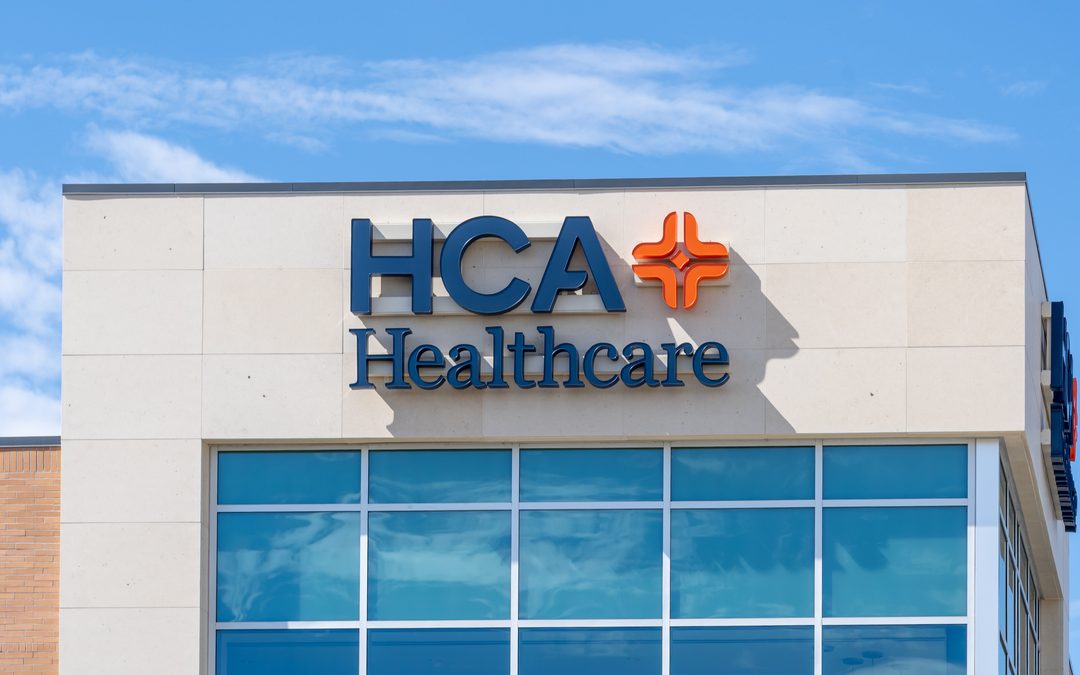HCA Healthcare Inc (NYSE: HCA), a for-profit healthcare provider based in Nashville, Tennessee, reported $4.93 earnings per share for the quarter, beating the consensus estimate of $3.99 by a whopping $0.94. This increase is largely due to HCA Healthcare’s revenue growth, which was up 4.3% on a year over year basis from $14.9 billion in Q1:22 to $15.6 billion in Q1:23.
The healthcare provider’s expenses rose from the first quarter of 2022, reaching $13.67 billion. Yet, despite the rising expenses, HCA Healthcare reported a $1.36 billion profit in the first quarter, an improvement from last year’s profit of $1.27 billion. However, this is a decrease from HCA’s $2.1 billion profit announced in Q4:22.
Same-facility admissions increased by 4.4% year over year, and equivalent admissions increased by 7.5%. Although same-facility revenue per equivalent admission fell compared to last year, this is primarily due to declining COVID-19 admissions.
During the April 21st earnings call, executives acknowledged that comparisons with the COVID-riddled first quarter of 2022 could be viewed as a low bar. However, they highlighted changes in the system’s sequential volume and workforce metrics as positive signs for investors.
Nonetheless, HCA CEO Sam Hazen acknowledged that staffing-related capacity constraints still held the company back in the latest quarter, even affecting surgical capacity.
“We have experienced instances where we were unable to operate all of our rooms to our satisfaction,” Hazen stated.
Despite the staffing issues, HCA Healthcare’s efforts to bolster retention and recruitment have paid off, with contract labor costs dropping 21% year over year and nurse hiring increasing almost 19% compared to 2022’s full-year average.
The strong first-quarter performance and upward momentum led HCA Healthcare to adjust its guidance for 2023. The healthcare provider’s revenue range rose from $61.5 billion to $63.5 billion to between $62.5 billion and $64.5 billion. The net income attributable to the company also increased from $4.53 billion to $4.9 billion to between $4.75 billion and $5.16 billion, with earnings per diluted share rising from $16.40 to $17.60 to between $17.25 and $18.55.
HCA Healthcare’s stronger performance and improved cash flow ($1.8 billion in the first quarter of 2023 compared to $1.3 billion in the first quarter of 2022) will allow the company to be more aggressive with its capital expenditure plans. The company has already closed a transaction to increase its ownership interest in the Valesco Physician Services joint venture with Envision, which is expected to generate about $1 billion in annual revenues with no material impact to adjusted EBITDA. The healthcare provider also spent $846 million during the quarter to repurchase common stock.
HCA Healthcare is prioritizing a combination of land acquisition for new hospital development, outpatient network development and facility expansions. During the Q1:23 earnings call, Hazen said, “Before we get to share gain possibilities in those markets, that is going to require us to build out some new hospital facilities,” which comes at a higher cost given the cost of capital these days. Additionally, HCA Healthcare continues to face challenges with high facility occupancy levels that need to be addressed.
Moreover, HCA Healthcare’s board has implemented a share repurchase plan that allows the company to repurchase $3 billion worth of outstanding shares. Such a move could potentially indicate that management believes the company’s stock is undervalued and may help to reassure investors.
Despite challenges such as staffing-related capacity constraints, HCA Healthcare seems to be on an upward trajectory, and its Q1 performance bodes well for its future.

